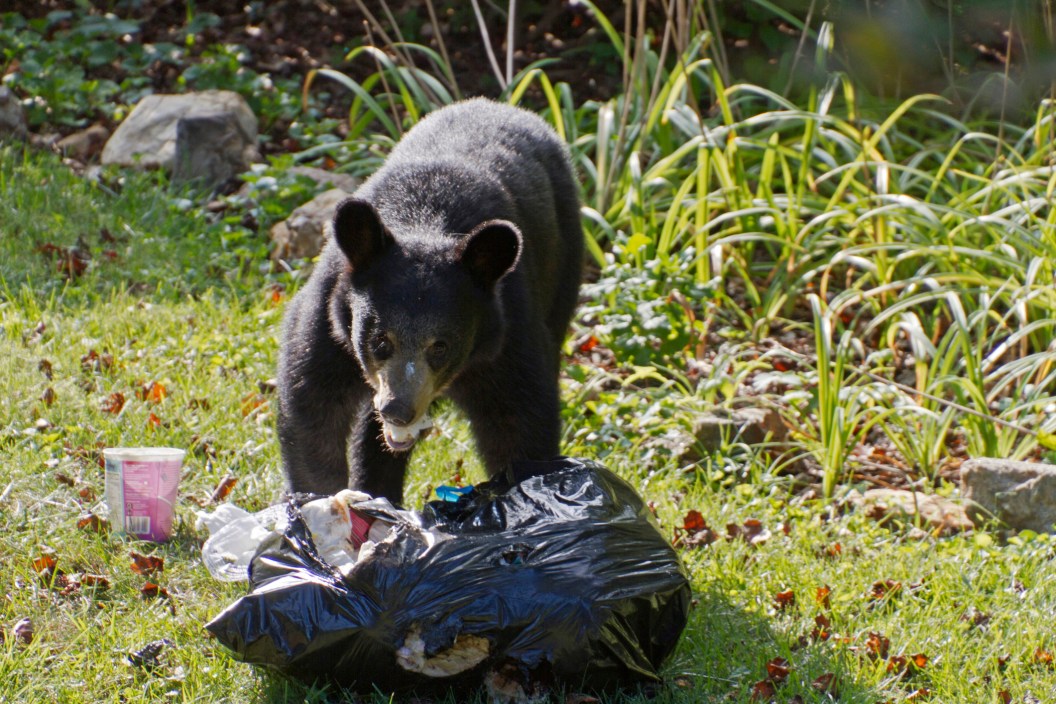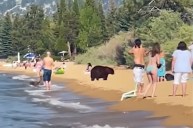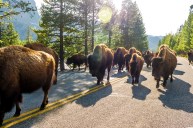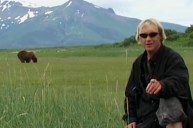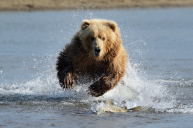The local Lake Tahoe community has been plastered with dozens of paper posters encouraging people to feed the wild bears.
The flyers paint a desperate picture of the lives of bears, which is unrooted in reality, according to local experts.
"There's something every citizen of Lake Tahoe needs to know about our Black Bear population," the flyer reads. "They are suffering tremendously."
The message continues on to label the black bears a "marginalized and oppressed species," and label their living conditions a "tragedy." The writer of the letter, who identifies as Steven, claims the black bears in Lake Tahoe walk slowly because of malnutrition and sickness caused by eating garbage. Steven condemns the Don't Feed the Black Bears campaign, and says it was "dreamed up by people too lazy to sweep up garbage supposedly created by an animal."
Steven also attacks people who adhere to the concept of the campaign and the scientific research behind it. He suggests people pretend to be bears to empathize with how bears feel.
"Young people always remember to feed the bears," the message concluded. "You are not your parents."
Toogee Sielsch, a local black bear expert, called the flyers a sick joke, ABC 7 News reported.
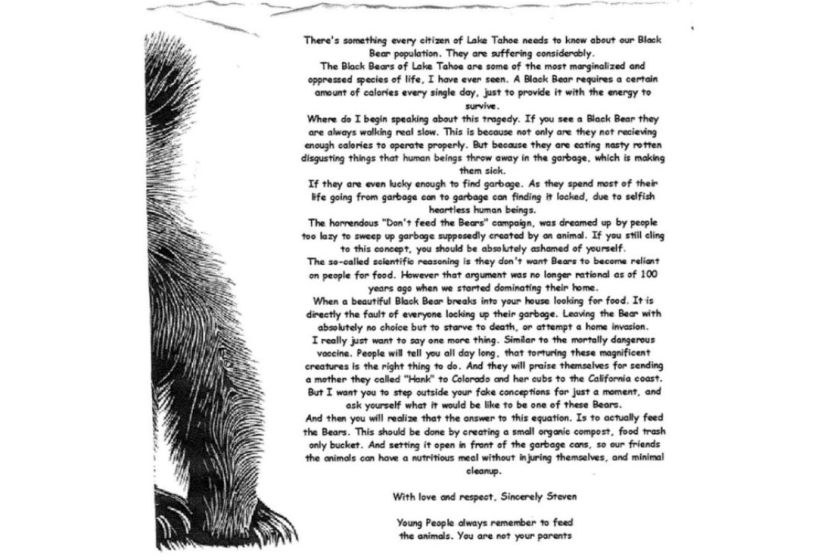
ABC News 7
This type of misinformation is dangerous to both humans and bears. There are two main reasons it is problematic for humans to feed bears: bears lose their fear of humans, and they become conditioned to be lazy.
When left alone, bears typically ignore and avoid people. If bears start to receive food from humans, they associate humans with food and lose the natural fear of humans. They see people and think about food. Bears that are unafraid of humans are unpredictable, according to My Smoky Mountain Guide.
Once a bear establishes a connection between people and food it will frequent places humans are likely to be, such as campsites, picnic areas, and cars. Bears without fear can be aggressive, but a hungry bear without a natural fear of humans could be deadly, for either humans or the bears. When bears become dangerous in human settings, they need to be euthanized for the safety of the public.
There is also the issue of bears becoming too dependent on the food humans provide. They learn to seek food from humans rather than seeking it from natural settings. This increases the frequency of bears around where people congregate, increasing the likelihood of negative interactions.
"It transforms wild and healthy animals into habitual beggars," The National Park Service said. "Studies have shown that panhandling animals have a shorter lifespan. Beggar animals may die from ingesting food packaging. Many animals have died a slow and agonizing death from eating plastics and other materials. Many are hit by cars and become easy targets for poachers."
READ MORE: Trains Are Killing Drunken Grizzlies—and Wildlife Groups Are Suing
